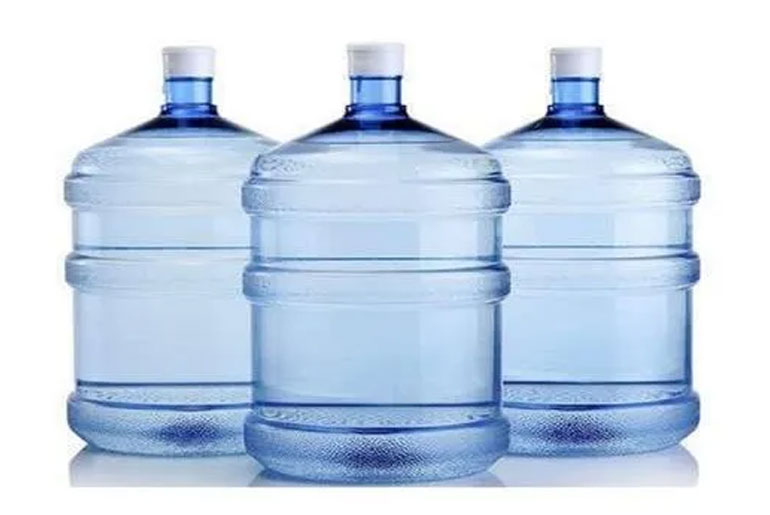The concerns raised in your message about the use of plastic water cans for drinking water are indeed significant, and they highlight the environmental and health risks associated with this common practice. Let’s break down the major concerns you’ve outlined:
Major Concern #1: Environmental Impact of Plastic
- Non-Degradability: Plastic water cans are typically made of non-biodegradable materials, which means they persist in the environment for extended periods, contributing to pollution in landfills and ecosystems.
- Threats to Wildlife: The presence of plastic waste in the environment poses threats to wildlife, as animals may ingest or become entangled in plastic debris.
- Greenhouse Gas Emissions: The production of plastic contributes to greenhouse gas emissions, which exacerbates climate change.
Major Concern #2: Plastic and Human Health
- Chemical Leaching: Prolonged use of plastic water cans can result in chemicals from the plastic leaching into the water, which may, over time, enter the bloodstream when consumed.
- Exposure to Sunlight: Exposure to sunlight can accelerate the process of chemical leaching from plastic, making it more harmful to human health.
Health Risks:
a) Immune System Disruption: Ingesting chemicals from plastic can potentially disrupt the immune system.
b) Dioxin Production: Exposure to sunlight can release dioxins, which may increase the risk of certain health issues, such as breast cancer, if consumed.
c) Liver Cancer and Reduced Sperm Count: Plastic water cans may contain chemicals like phthalates, which could be linked to health problems like liver cancer and reduced sperm count.
d) BPA Generation: Bisphenol A (BPA) is a chemical that can be generated from plastic water cans. BPA mimics estrogen and is associated with various health problems, including diabetes, obesity, fertility issues, behavioral problems, and early puberty in girls.
It’s important to note that while some studies suggest links between these health issues and the use of plastic containers, the exact mechanisms and long-term health effects may vary from person to person.
To address these concerns, individuals and society as a whole can consider alternative methods for obtaining safe drinking water, such as using water purifiers, investing in reusable and non-plastic containers, and advocating for sustainable practices in water distribution and packaging. Reducing plastic waste and its environmental and health impacts is a shared responsibility and requires a shift toward more eco-friendly and health-conscious choices.
Tips for clean drinking water:
Here are some tips for clean drinking water:
1. Prioritize Safety:
Err on the side of caution when it comes to your drinking water. If there are potential risks associated with the water source or container, it’s wise to seek safer alternatives.
2. Reduce Plastic Exposure:
Reusable Containers: Use reusable, non-plastic containers for storing and carrying water. Stainless steel, glass, or BPA-free options are good choices.
Avoid Single-Use Plastics: Minimize the use of single-use plastic bottles and containers. Opt for refillable options or alternatives like paper or glass.
3. Eco-Friendly Choices:
Metal or Glass Bottles: Extend the practice of using metal or glass bottles to carry drinking water. These are not only eco-friendly but also durable.
Cloth Bags: Just as with bags, you can use cloth bags to carry water bottles and containers, reducing the need for single-use plastic bags.
4. Health Protection:
Making eco-conscious choices not only benefits the environment but also protects the health of yourself and your family. Avoiding potential health risks associated with plastic exposure is a crucial aspect of this.
5. Choose Customized Water Purifiers:
Consider using water purifiers that are customized to your specific needs and concerns. These systems can help ensure a constant supply of clean, safe, and healthy drinking water without the need for plastic containers.
6. Explore Sustainable Water Sources:
If available, consider alternative sources of clean water, such as public water fountains, water refill stations, or tap water that meets safety standards.
7. Regularly Maintain Water Storage:
If you use water storage containers, whether they are plastic or alternative materials, make sure to clean and maintain them regularly to prevent contamination.
8. Stay Informed:
Keep yourself informed about local water quality reports and any potential contaminants in your area’s water supply. This information can guide your choices and actions.
9. Advocate for Sustainability:
Support and advocate for sustainable water practices, such as reducing plastic waste, investing in clean water infrastructure, and promoting eco-friendly alternatives in your community.
By following these tips and embracing eco-friendly solutions, you can reduce your exposure to potential health risks associated with plastic water containers and contribute to a healthier environment.
Disclaimer:
The information contained in this article is for educational and informational purposes only and is not intended as a health advice. We would ask you to consult a qualified professional or medical expert to gain additional knowledge before you choose to consume any product or perform any exercise.








